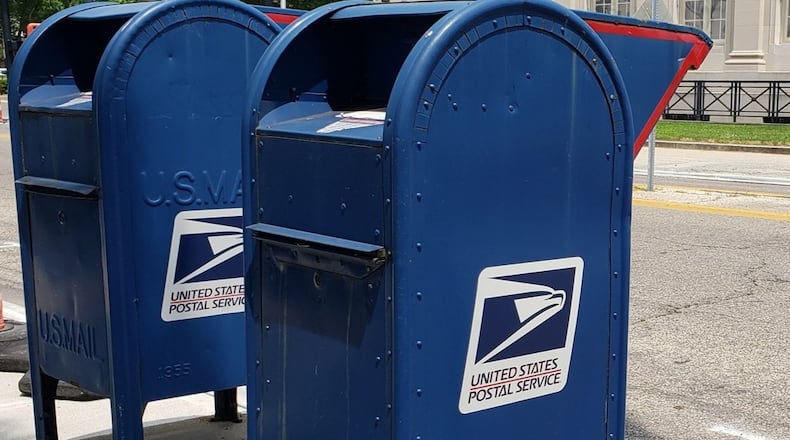Current law allows absentee ballots to be delivered by mail up to four days after election day, as long as those ballots were postmarked on the eve of the election, at least. Ohio’s grace period used to be 10 days before it was pared down.
In November 2024, the grace period allowed for 241 ballots to be counted in Butler County, 57 ballots to be counted in Clark County and 250 in Montgomery County, according to the local boards of elections. In Cuyahoga County, that number nearly reached 3,000, according to WEWS.
Locally, the grace period mail-in ballots represent a small portion of the overall absentee ballots returned to the boards. Many other ballots delivered in that same grace period weren’t counted due to ballot errors.
Jeff Rezabek, executive director of the Montgomery County Board of Elections, told this outlet that absentee ballots tend to pour in a day after the election, with each subsequent day returning fewer and fewer ballots. This month, for example, he received about 240 ballots the day after the election, 70 ballots two days out, about 20 ballots three days out and a couple ballots on the fourth day.
The trend, Rezabek said, is shaped by the fact that voters know they need to get their absentee ballots postmarked by the day before the election day, because the United States Postal Service is good about getting ballots to their destination within four days.
“Voters just know, ‘If I get it postmarked by then, it should count,’” he said.
In Rezabek’s estimation, getting rid of the grace period and keeping the same day-before-Election-Day postmark deadline would result in voter confusion. He argued eliminating the grace period would logistically require the state to move its postmark deadline, in response.
“If you move the dates back, people will respond. But what you can’t do is say, ‘Well, it’s got to be postmarked by the day before,’ and then just say, ‘It’s also got to be in by tomorrow at 7:30 (p.m.)’” Rezabek said. “That’s being disingenuous.”
Much of the reasoning behind S.B. 293 hinges upon a federal ruling from the U.S. Court of Appeals for the Fifth Circuit, which does not have jurisdiction over Ohio but is seen as a possible indication of what’s to come.
In 2024, the court declared that Mississippi cannot accept late ballots for federal elections, because federal law mandates all states to hold federal elections on a single day, according to the state’s nonpartisan analysis of S.B. 293. President Donald Trump added his own pressure with an executive order that directs his administration to take enforcement actions against states that accept late ballots.
Ohio’s mail-in ballots are not the only ballots that are currently counted after Election Day. S.B. 293 wouldn’t do anything to shorten the four-day grace period for uniformed services and overseas absent voter’s ballots, known as UOCAVA. Boards of elections determine the validity of provisional ballots after polls close, too.
House Speaker Matt Huffman, R-Lima, said he expects the U.S. Supreme Court to weigh in on the issue at some point next year. He didn’t opine on the bill but has lamented the idea of absentee balloting being used in circumstances where it’s not completely necessary, largely because its common for absentee ballots to be filled out incorrectly.
“We’ve had a mantra over the last several years about how great mail-in balloting is, and it’s not,” Huffman said. “... Sometimes, people don’t put stamps on it, or even if there’s stamps, they put it in the wrong mailbox, or they gave it to somebody to send in the mail, or they didn’t sign whatever they had to sign, or they voted for two people in one race which kicks out the whole ballot. All of that stuff doesn’t happen if you show up in person, and we’ve got 30 days to do that.”
It’s not yet clear whether, or how quickly, S.B. 293 will be prioritized by the House’s Republican supermajority. Minority House Leader Dani Isaacsohn, D-Cincinnati, told reporters last week that Democrats would be opposed.
“I think, in general, it’s not good to be on the side of limiting people’s access to the ballot and people’s access to voting,” he said. “The story of this country is progressively increasing the ability for people to have access to that most fundamental right, so I’m immediately skeptical of any effort to pare back people’s access to the ballot.”
For more stories like this, sign up for our Ohio Politics newsletter. It’s free, curated, and delivered straight to your inbox every Thursday evening.
Avery Kreemer can be reached at 614-981-1422, on X, via email, or you can drop him a comment/tip with the survey below.
About the Author

